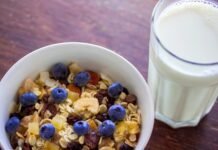Introduction
Honey is the result of the natural work of bees, which transform flowers’ secretions (nectar) and te secretions of certain insects (honeydew). Its delicious flavour derives from the hard work of the bees to produce it and by men’s actions to extract it. Honey’s extraction provides a centrifugation, a rest in the deposits and then honey is placed in the jars. These are the only processes that maintain intact the characteristics of organic honey and consume it in its natural form.

Nutritional properties
Feeding honey is often used on a daily basis because of its nutritional properties. It is in fact composed by simple sugars easily digestible and by enzymes and minerals. Its sugar content allows the body to produce energy in a short time, that is why it is recommended in small quantities before training.
Honey benefits some specific section of human body:
- Upper respiratory tract -> soothing cough
- Muscles -> increase of physical power and endurance
- Heart -> benefic action especially in people suffering from heart problems
- Liver -> protecting and detoxifyng action
- Digestive system -> stimulating and regulating action
- Kidneys -> diuretic
- Blood -> anti-anemic action
- Bones -> calcium and magnesium determination
Royal Jelly
Do you know Royal Jelly is good for sport people and athletes? Increase metabolism, improve immune system and it’s an energy recover. Royal jelly (RJ), which is secreted by the hydropharyngeal gland of worker bees, has a broad spectrum of beneficial physiological properties. While honey provides energy for the worker bees, royal jelly acts as the main source of food for the colony’s queen.
Tips
If you want to consume honey as a sweetener in milk or other beverages, you have to pay attention about their temperature. Adding it in boiling liquids may subtract honey of many of its properties, limiting its beneficial capacity.
You can take in daily doses instead of the common table sugar, sucrose.
It keeps well but it is important not to let it grow too to avoid the loss of property and organoleptic characteristics. The recommended maximum storage is two years.
For other recommended foods:
https://foodnhealth.org/coconut-oil/
https://foodnhealth.org/eating-brown-advantages-and-disadvantages/


























